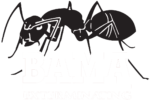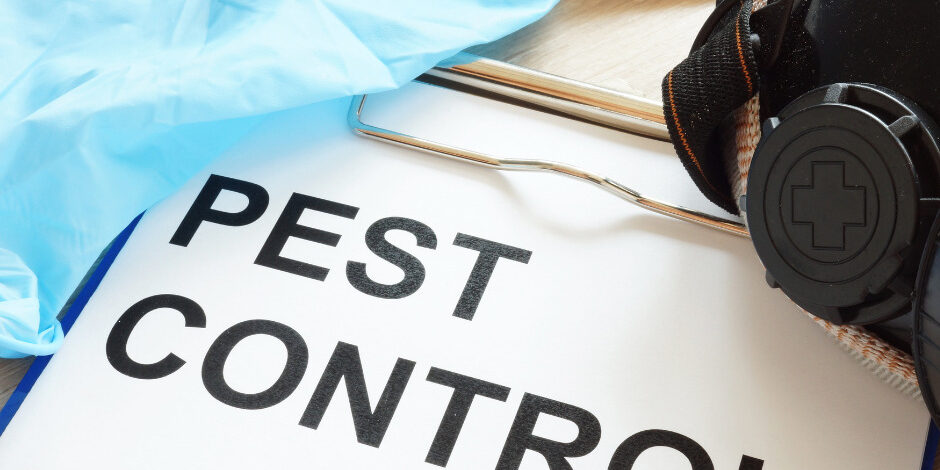Things To Do Before and After Pest Control Treatment
Pests like cockroaches, bees, rodents, spiders, termites, and other insects can be a great problem in our houses. Most homeowners understand the significance of having quarterly pest control services, but few realize that the behaviors you perform immediately after treatment will directly determine its effectiveness. Make sure you’re getting the most out of a pest control treatment by taking the following precautions before and after the extermination.
BEFORE A PEST CONTROL TREATMENT
Let’s go through a few things to think about before your pest control appointment.
Access
Pest Control experts would have easier access to your home if you remove all big furniture or appliances from your home’s corners. They will get into the small spaces where other bugs thrive. It also protects the furniture and fixtures from any leaks or spray of the chemicals used during the treatment.
Clothes and Furniture
Ensure that the clothes, children’s toys, makeup, toiletries, and so on are all put away, and covered in a bubble wrap. Keep them inside shelves and, if necessary, use tape to close the spaces between the doors and drawers. Masking tape is not suitable since it is made of paper and can absorb the contaminants sprayed.
Store and remove all bed sheets, covers, cushions, pillows, mattresses, and so on. If you run out of storage space, remember to wrap your items in plastic wrap. Also, wrap the sofas, beds, and tables in bubble wrap. Cloth sheets will not be sufficient since the chemicals may enter them. Any pests, such as termites, would require the removal of wooden furniture.
Kitchen & Dining Area
Empty your garbage can. Clear the counters and pack all of your utensils, cutlery, bowls, cups, bottles, and so on. Kitchen cabinets, unlike other types of furniture, are commonly sprayed because they attract the most pests.
Small kitchen appliances should preferably be moved out of the kitchen. If it is not possible, unplug them and wrap them completely in plastic wrap. If you have to leave them on the countertop, make them easy to move around.
Food must be stored in heavy plastic containers at all times. Many bugs are capable of chewing through thin plastic and seeking shelter within. Place items such as spices and chips inside your refrigerator if necessary.
In terms of the refrigerator, you would need to unplug it. Consider using up all perishables and throwing out any leftovers.
Pets
Pets are usually highly susceptible to the pesticides used in pest control. It would be ideal if you could leave your pet at the home of a neighbor or friend for the duration of the pest control service.
Keep your pet’s bedding and accessories in a safe place. Take your pet to the vet for flea and tick treatment. Aquariums must be securely wrapped in film. Make sure your fish have enough food to last the amount of time it will take for the treatment. If you don’t have one, now is a smart time to invest in a fish auto feeder. Switch off all aquarium air pumps so they can’t absorb airborne toxins and inject them into the water.
Paints & Flower Pots
Flower pots and other ornamental plants should be left out in the open. Find a non-sprayed balcony or the roof. Some plants may be bundled, while others can wither.
Bathroom
Bathrooms should be empty if they are going to be treated. You may need to pay extra attention to your toothbrushes, floss, shaving razors, and other personal care products. After the procedure, it is advisable to change your soaps and detergents.
AFTER A PEST CONTROL TREATMENT
Now that we’ve covered how to plan for a pest control service at home, let’s look at what you can do after the pest control service is over. These before and after pest control tips are critical for a successful service.
Wait
If you have to leave your home, wait until it is safe to enter your home again. Depending on the treatment, it can take anywhere from 30 minutes to multiple hours for you to safely enter your home again. Your pest control professional will advise you about how long you have to wait after extermination before returning home.
Discard Left Out Food
If you accidentally left food out, dispose of it in the trash. Even if your exterminator used safe-organic pesticides in the pest control process, such food would never be absolutely safe for you to consume.
Avoid Cleaning
Fight the urge to clean right away. If you wipe it right away, you might remove the chemicals used by your exterminator, thus, reducing the effectiveness of the chemicals used. Pest management treatments are normally tailored to your specific needs. They will tell you where you should clean again and when you shouldn’t. For at least a day or night, avoid deep cleaning.
Protect Yourself
Wear protective gear. When touching treated surfaces for the first time, put on a pair of protective gloves. Except when unwrapping products, avoid touching surfaces with your bare hands.
Repair Any Cracks & Leaks
If you have some leaky taps or drainage pipes in your home, have them repaired as soon as possible. Water from leaks and cracks can provide an entry point for pests which can result in a re-infestation. Make sure that your home is free from cracks & leaks.
Remove Paper Products
Many pests like Termites, silverfish, and cockroaches all love snacking on paper products. Wet paper (of some kind) and brown bags (used to distribute groceries) are the ones to be on the lookout for. Do not Keep old newspapers and magazines in the kitchen. You can help prevent re-infestation by recycling your paper products & throwing them away.
Keep Checking for Pests
In the days after the procedure, you will most likely begin to encounter dead bugs on a regular basis. Make it a habit to inspect and vacuum the trouble spots on a daily basis. Dead pests may draw more pests, aggravating the condition.
Coordinate with a pest control company to ensure that you are truly prepared and to have the best service possible.
PEST CONTROL’S EFFECT ON YOUR HEALTH
It is a commonly held belief that pest control services use highly toxic or harmful substances. People who are worried about health issues often demand organic or natural services. Let’s take a look at the factors below to help you understand more.
- In a way, all pest control chemicals are toxic. They are, however, not deadly to humans, at least not in the amounts used for the pest control treatment. However, if you are prone to be allergic to fumes and chemicals, it is safer to remain away from the pest control process. And after the odors and vapors have dispersed, which normally takes a few hours, you can then head home.
- Organic treatments often make use of processed substances derived from natural sources. Although they can trigger fewer health issues, they are usually less effective at pest control. Organic chemicals may not always be an alternative, depending on the severity of the infestation.
All of the above statements are null and void if you or a family member are allergic or sensitive to such chemicals. If you are aware of such a condition, contact the pest control service provider as soon as possible. Discovering that you are allergic to a certain chemical when undergoing treatment can be very upsetting. If you suffer or see one or more of the following signs, leave the area immediately and seek medical attention if necessary:
- Itchy skin
- Redness or rashes on the skin
- Watery, Itchy eyes
- Dizziness
- Difficulty in breathing
- Throat irritation
Professional Exterminating companies like us, Bama Exterminating, can help you with your pest control problems. We give our clients comprehensive and thorough inspections and treatment of any pest-related problems. Even more, we pay special attention to your specific needs, making sure to always put them first. Call us today for a free, no-obligation quote.







